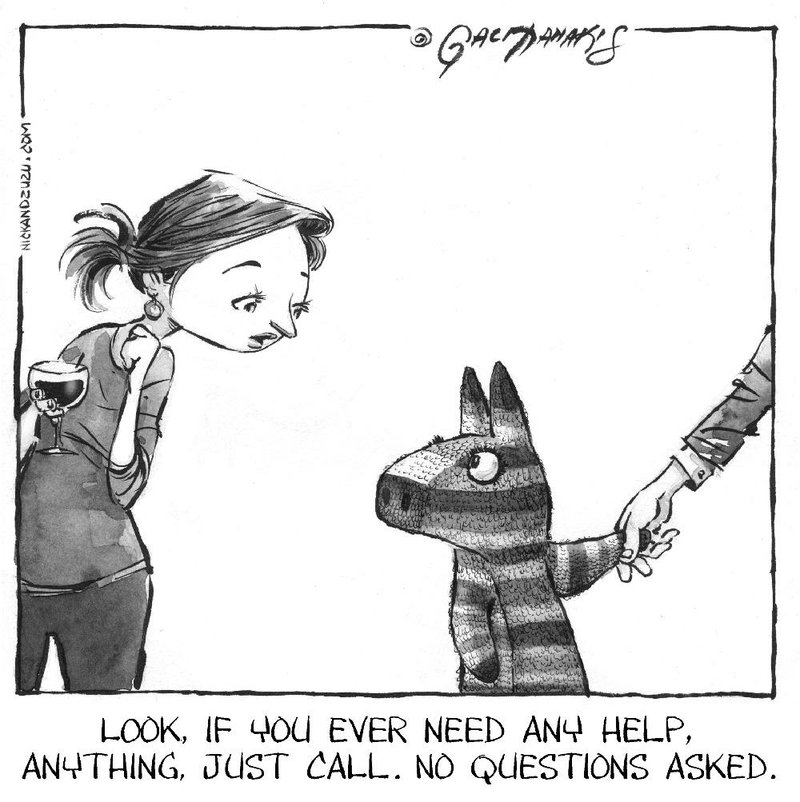DEAR CAROLYN: We have a friend, "Allen," who has recently lost touch with us and who we believe is being manipulated and emotionally abused by his significant other. Over the course of their relationship, his now-wife: has joined herself to Allen's hip in that he can't make plans with others that don't include her; occupies about 90 percent of his social interactions when they do attend events and parties together; has drastically changed his diet (former meat-lover to hard-core vegan); has rushed him into their life events, including moving in together, proposing, getting married, buying a house, and has even named their future children.
I do respect that every couple is different and proceeds with such life events at their own pace, but it is known that she actually forced him to propose to her, throwing a tantrum at a mutual friend's wedding a while back as they "still" weren't engaged by then!
Since they got married in September, he has stopped speaking to me and a few of our other mutual friends where he was previously very close to us. I feel this is her doing, and she's trying to control who he talks to now.
The thing is, Allen avoids confrontation like the plague, so he just lets this all happen, and refuses to respond if anyone tries to reach out to him. Some of us have asked him if he's OK, if he needs help, etc., as he's visibly miserable, but he just ignores us. It's possible she even monitors Allen's phone and computer.
Is there anything else we can do for Allen? Or are we forced to watch this horror from afar?
-- T.
DEAR READER: That's the short answer, yes. When someone chooses to stay away from you, even if that choice is coerced, it's hard even to make an argument for parachuting into his life, much less to pull it off.
But. You know red flags when you see them -- good for you -- and there are a lot here for sure: her possessiveness, isolation, public-tantrum volatility, pressure to commit, plus his natural reluctance to stand up for himself.
And, friends look after friends, even -- especially -- when it's difficult to do so.
And, the best hope you can give someone in a relationship with an abuser is to serve as an "I'm here, no questions asked" lifeline (said explicitly if the opportunity arises) for whenever that person is ready to get out.
Add all these up and you have the one thing you can do here: Remain as present in Allen's life as his circumstances allow. Do not stop calling, do not stop texting, do not stop engaging. Obviously you don't want to make a nuisance of yourself, but you can enlist other mutual friends to be part of a circle of readily available support, where each of you commits to checking in at regular, nonharassing intervals.
Four of you, say, sending Allen a warmly neutral check-in or invitation twice a month -- quite hands-off for "previously very close" friends -- will add up to a reminder every few days that he has people standing by who care about him. What doesn't seem like much now can become, if and when he's ready, the propped-open door to the rest of his life.
Chat online with Carolyn at 11 a.m. Central time each Friday at washingtonpost.com. Write to Tell Me About It in care of The Washington Post, Style Plus, 1150 15th St. N.W., Washington, D.C. 20071; or email
tellme@washpost.com
Style on 03/21/2017
